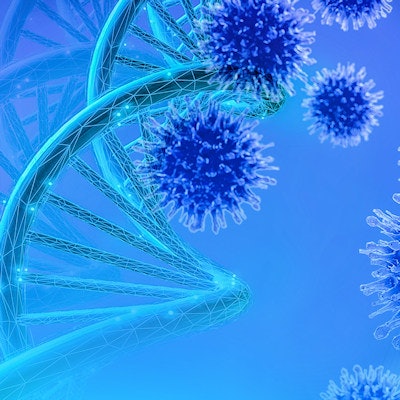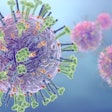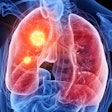
A relatively low-cost, high-volume RT-PCR technique used by thousands of U.S. clinical laboratories could be used for SARS-CoV-2 variant classification, according to a study published Wednesday in the Journal of Clinical Microbiology.
The customizable genotyping technique, developed to identify known variants and subvariants, was funded by the Rapid Acceleration of Diagnostics (RADx) technology program of the National Institutes of Health (NIH).
The approach, which uses minimal hardware and software, can augment current surveillance methods that use comprehensive next-generation sequencing of virus samples, helping focus sequencing efforts on samples representing unknown and emerging variants, the NIH said in a statement.
While reported cases of COVID-19 have topped 400 million globally, only a fraction of positive test samples are sequenced -- around 5% in the United States, according to the NIH.
Sequencing a viral genome, while necessary to discern unknown variants that arise, is costly and can take from two to three weeks. Adding to the complexity of sequencing, only about half of the positive samples have sufficiently detectible RNA for quality results. Furthermore, sequencing runs are performed in batches, sometimes delaying timely reporting of results.
The new technique zeroes in on genetic reference points and limits the intense process of sequencing a 30,000 base-pair SARS-CoV-2 genome to a set of about 45 or fewer of the relevant alterations that distinguish the variety of subvariants in circulation at a given time, the NIH said, adding that the research team showed that known variants can be successfully identified in one to two days for a fraction of the cost of next-generation sequencing.
The research team that developed the technique is part of the RADx Tech program Variant Task Force, and RADx Tech is led by the National Institute of Biomedical Imaging and Bioengineering (NIBIB) at the NIH.
"The work of the task force offers a method that can be widely adopted and improve data gathering and reporting," NIBIB Director Bruce Tromberg said in a statement. "As variants of SARS-CoV-2 continue to emerge, it is critical to know where they are spreading and how rapidly, so countermeasures can be implemented. With this method we can develop new assays and get them into labs about two weeks after identifying a new variant."
Under contracts with the NIH, testing laboratories at Aegis Sciences in Nashville, Helix in San Diego, and the University of Washington Medical Center in Seattle have adopted the genotyping approach.
They are contributing data to the Rosalind Tracker for COVID-19, a tracking tool that could become increasingly powerful as more public health and private testing labs adopt the genotyping approach and contribute their data to infectious disease authorities, the NIH said.
The NIH contracted with Thermo Fisher Scientific to supply the instruments, consumables, reagents, software, and single-nucleotide polymorphism marker assays required to run the genotyping assay.
The genotyping approach can be implemented in any lab that performs RT-PCR, the researchers wrote in the study. "Specific single-nucleotide polymorphisms (SNPs) and indels were identified which had high positive-percent agreement (PPA) and negative-percent agreement (NPA) compared to NGS for the major genotypes that circulated through September 11, 2021," they said.
They used a 48-marker panel for testing on 1,031 retrospective SARS-CoV-2 positive samples. That yielded a PPA and NPA ranging from 96.3% to 100% and 99.2% to 100%, respectively, for the top 10 most prevalent World Health Organization (WHO) lineages during that time.
Ultimately, a 16-marker panel was determined to be nearly as effective as the 48-marker panel at lineage assignment.
"The genotyping platform is commonly available in thousands of clinical and research labs in the country," Eric Lai, team leader with the RADx Tech VTF, said in a statement. "Potentially, if this testing approach is further developed and authorized for clinical use, a hospital lab could order the reagent, validate the assays, and perform genotyping on a single sample within a couple of hours to learn whether a person has COVID-19 and with which variant they are infected."
He also noted that the faster turnaround compared to next-generation sequencing could help inform decisions such as tailoring monoclonal antibody treatment.



















